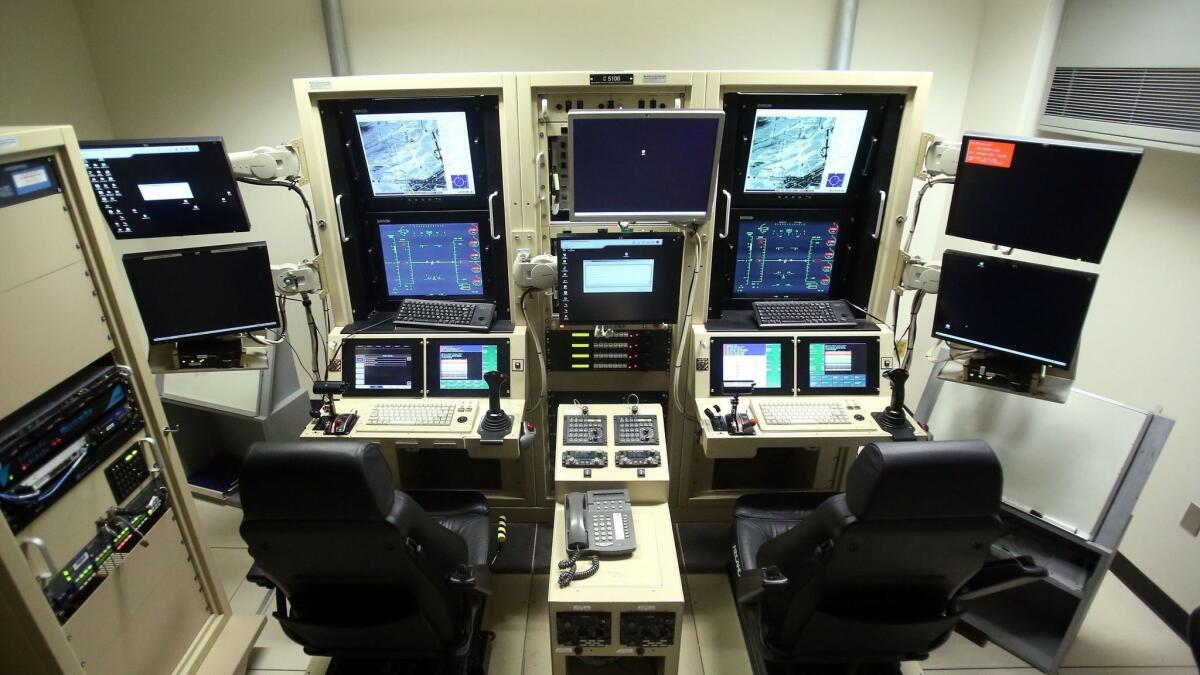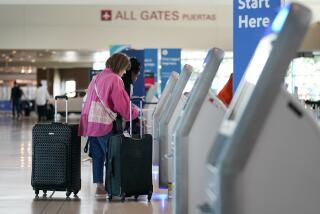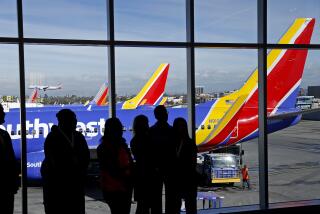Airline pilots protest a study on allowing cargo planes to be operated by only one pilot with remote help

- Share via
Unions representing nearly 50 commercial airlines have launched a protest against federal legislation to study the idea of putting cargo planes in the hands of only one pilot with the help of remote-control pilots on the ground.
But this dispute includes a big mystery: Officials of pilots unions don’t know who put the language in the Federal Aviation Administration funding bill to study the idea of one pilot per cargo plane or for what reason. The FAA bill sets aside $128.5 million to research the concept, along with other topics of research.
The pilots unions, representing more than 100,000 pilots, say they are opposed to the idea of eliminating a co-pilot from a commercial cargo plane because the task of flying a jet, communicating with air traffic controllers and monitoring weather changes requires two trained pilots.
The unions also say remote-control flying is vulnerable to glitches and computer hackers.
“Anything less than two pilots physically in the cockpit will significantly increase risk, especially during emergency operations, when timely actions are coordinated and implemented by each crewmember based on real-time information,” said Robert Travis, president of the Independent Pilots Assn., the collective bargaining unit for UPS.
The FAA funding package for 2017-2018, adopted by Congress in April, includes a line that says, “The FAA, in consultation with NASA and other relevant agencies, shall establish a research and development program in support of single-piloted cargo aircraft assisted with remote piloting and computer piloting.”
The legislation does not explain the motivation for the study.
Kara Deniz, a spokeswoman for the International Brotherhood of Teamsters, which represents pilots that fly for Aloha Air Cargo and Southern Air Cargo, among other carriers, said the union doesn’t know who put the language in the FAA bill but suspects that the study is the first step in a move to propose requiring only one pilot on commercial passenger airlines.
“It’s possible that this is the way to get the camel’s nose under the tent,” she said.
Representatives for FedEx Corp. and Atlas Air, two of the nation’s biggest cargo airlines, declined to comment on the matter.
Twitter: @hugomartin
More to Read
Inside the business of entertainment
The Wide Shot brings you news, analysis and insights on everything from streaming wars to production — and what it all means for the future.
You may occasionally receive promotional content from the Los Angeles Times.











